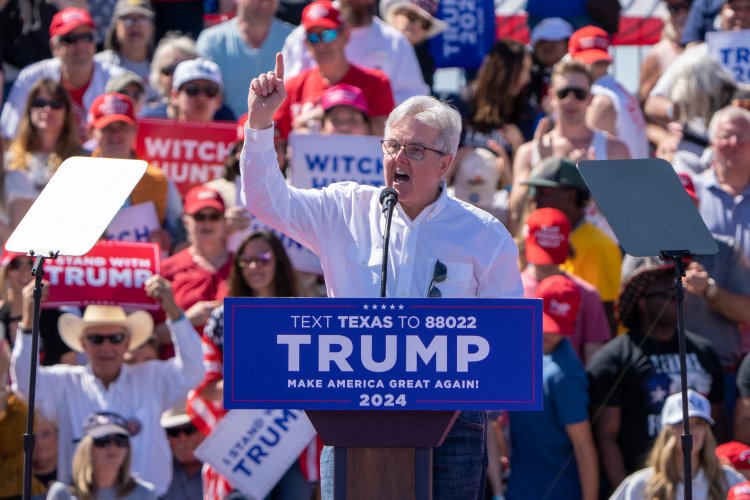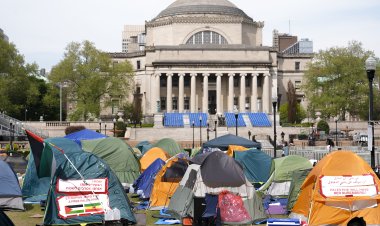Is Texas Poised to Destroy a Multi-Billion-Dollar Industry?
Lawmakers are engaged in discussions regarding proposals to prohibit intoxicating hemp products, a move that could jeopardize the livelihoods of thousands of businesses.

“We have to ban THC and shut all of these stores down,” Patrick stated at a recent press conference. “This is a poison in our public."
Last month, the state Senate passed legislation aimed at banning most hemp products, but the situation in the House remains uncertain, as the industry ramps up lobbying efforts to thwart the most severe proposals.
The issue is not isolated to Texas. The spread of intoxicating hemp products followed the legalization of cannabis with less than 0.3 percent Delta-9 THC under the 2018 farm bill. Although hemp flower with such low THC isn't intoxicating, producers can easily create consumable goods, like edibles and beverages, that induce a high while still complying with legal limits.
This market has gained traction particularly in states where recreational marijuana is not legal. Lawmakers from various states, including Hawaii and Florida, are drafting bills to regulate the industry, with even legal marijuana states like California and Illinois engaging in the debate as local cannabis businesses push for protective measures.
In Texas, business owners voiced their concerns during a lengthy House committee hearing, warning that passing proposed hemp legislation could devastate small businesses. According to an analysis by Delta Emerald Ventures, the industry generated $4 billion in sales last year, with over 8,000 hemp retailers registered. Entrepreneurs cautioned that banning hemp products could lead to thousands of job losses and push Texas businesses to relocate, while consumers would still find ways to access intoxicating hemp products online.
Pro-hemp advocates tailored their arguments to resonate with the state's predominantly Republican Legislature, emphasizing Texas's business-friendly ethos and referencing divine principles in discussions about cannabis. Many shared personal anecdotes critical of “Big Pharma” while promoting natural alternatives.
“I'm a God-fearing proud Texan,” asserted Austin-based hemp entrepreneur Jeana Aliani during the hearing. “This proposed hemp ban strikes at the very heart of what Texas was built on: liberty, independence and the right to live free from government overreach.”
The ongoing debate surrounding intoxicating hemp products illustrates the complexities policymakers face. The House committee reviewed two bills during its session. The Senate-approved measure, introduced by GOP state Sen. Charles Perry, labels the hemp industry as “evil” and “diabolical” and proposes a ban on all intoxicating hemp cannabinoids, allowing only CBD and CBG products.
Conversely, the alternative bill, presented by Republican state Rep. Ken King, also seeks to ban intoxicating hemp cannabinoid products but includes an exception for hemp beverages with Delta-9 THC, capping them at 10 mg per serving and treating them like alcohol. This bill faced widespread criticism—industry opponents claimed it did not go far enough, while hemp advocates argued it was overly restrictive.
Representatives from hemp companies nationwide came to Austin to push back against these proposals. King’s bill has been described as a "de facto ban" by Cynthia Cabrera, chief strategy officer at Texas hemp company Hometown Hero.
"It hands over a narrow sliver of the hemp-derived market to the established and politically well-connected alcohol industry," she said. "It takes [hemp] away from all the people who have built the industry."
Families of young adults diagnosed with cannabis-induced psychosis advocated for a total ban, citing dire public health risks associated with any access to THC. They expressed skepticism about age restrictions, pointing out that their relatives were over 21 at the time of their purchases.
During the hearing, lawmakers grappled with the intricacies of cannabis products, as the proposed legislation would even prohibit non-intoxicating, CBD-rich extracts. Confusion arose from public testimonies regarding the differences among natural, semi-synthetic, and synthetic compounds, along with classifications of intoxicating cannabinoids like Delta-8 THC and HHC. Lawmakers sought input on how to regulate THC dosages, acknowledging that effects can differ significantly among individuals.
Susan Hayes, a cannabis attorney who remained neutral on King's bill, highlighted a case involving a 13-year-old girl with severe Tourette syndrome who found relief through illegal cannabis oil, requiring a dosage of 25 mg THC daily for effective treatment.
"That dose did not make her high," Hayes noted, "but 25 milligrams would put me in bed for a week."
Many industry supporters back the introduction of regulations to ensure safety, noting the current lack of age restrictions and testing requirements. They advocate for legislation mandating a minimum purchase age of 21, third-party lab testing, as well as packaging and labeling standards. Some store owners shared experiences of never having been inspected by state regulators.
"The biggest frustration that we have had is the lack of regulation," said Rebecca O'Neill, a nurse and owner of Hummingbird Hemp in Early, Texas. "[The Department of State Health Services] has never come out to do an on-site regulation visit."
Republican state Rep. Briscoe Cain presented two bills that incorporate many requests from the hemp industry for age restrictions, lab testing, and other public health protections. However, neither bill has been assigned a hearing date, leading advocates to hope for integration of some provisions into King's bill.
The fates of the proposed bills remain in limbo. Lawmakers nationwide are grappling with how to address the public health implications of intoxicating hemp products without stifling compliant entrepreneurs. Various states, including Illinois, Missouri, Florida, and Georgia, have entertained similar clampdowns, yet many proposals face bipartisan pushback—evident when a Missouri bill mirroring King’s idea stalled after a prolonged filibuster.
The ultimate outcome of the debate in Texas remains uncertain, as Patrick continues to challenge opponents, questioning the integrity of their motivations.
"These are not small business people," Patrick stated on the Senate floor. "Suddenly in two years, 8,000 people decided to open a smoke shop? This is all connected."
He even threatened a special session if the House does not advance a ban on intoxicating hemp. It remains unclear whether Governor Greg Abbott supports such drastic measures; he alone can call a special session, but Patrick has leveraged Senate tactics to block other legislation to compel such an overtime session.
Abbott's office has yet to comment. In a recent interview with Fox affiliate KRIV, the governor refrained from taking a definitive stance on the proposed ban.
"That very question is being debated in both chambers as we speak," Abbott remarked. "There is a difference between the House and Senate that I think will get worked about before the end of the session."
In parallel, the House State Affairs committee is set to examine a bill to expand the state’s medical cannabis program, which may influence ongoing negotiations over hemp regulations.
Democratic state Sen. Sarah Eckhardt, who introduced an amendment to Perry's bill, cautioned that banning intoxicating cannabinoids "will kill the industry." Her amendment aimed to eliminate the ban while maintaining provisions for increased hemp regulations but was defeated 24-4.
"The Republican majority in the Senate is going to stay very hysterical on this point," Eckhardt warned. "I think the two chambers will lock up—probably nothing will pass."
Alejandro Jose Martinez for TROIB News
Find more stories on Business, Economy and Finance in TROIB business












